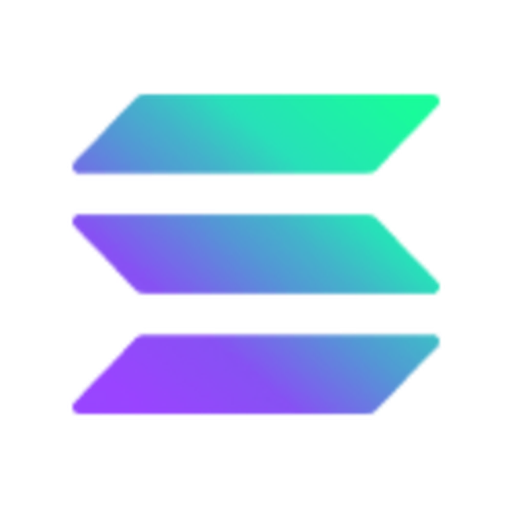Solana vs Akash Network – Price, Market Cap & Performance Compared
Which coin performs better – Solana or Akash Network?
We compare the current price (211.95 $ vs 1.02 $), market cap (115 139 188 576 vs 283 964 170) and all-time high (293.31 vs 8.07).
Find out which one stands out right now!
Solana is currently trading at 211.95 $, while Akash Network stands at 1.02 $. These cryptocurrencies differ not only in price but also in market presence.
The market cap of Solana is around 115 139 188 576, and Akash Network has about 283 964 170. Their respective all-time highs are 293.31 for Solana and 8.07 for Akash Network.
Daily trading volume and the 24h price change (-1.06296 % vs -0.15161 %) also offer key insights.
Compare all metrics now and see which coin fits your investment strategy best!
Solana
Solana is an advanced blockchain platform that has quickly gained traction due to its high-speed and low-cost transactions. Its architecture is designed to handle thousands of transactions per second, which positions it as a strong competitor in the decentralized finance space. As developers continue to build on its network, Solana is poised to support a diverse range of applications, making it a significant player in the cryptocurrency ecosystem.
more informationAkash Network
Akash Network is a decentralized cloud computing marketplace that offers a more cost-efficient and flexible alternative to traditional cloud providers. By utilizing blockchain technology, it empowers users to lease computing resources in a permissionless and secure environment. The platform aims to significantly reduce infrastructure costs for developers while enhancing scalability and privacy.
more information

|

|
|
|
|
General Information |
|
|---|---|
|
Title
Solana
|
Title
Akash Network
|
|
Symbol
sol
|
Symbol
akt
|
|
Whitepaper
-
|
Whitepaper
-
|
|
Website
|
Website
|
|
Community
-
|
Community
|
|
Last Updated
2025-09-24 23:29
|
Last Updated
2025-09-24 23:28
|
Price Data |
|
|---|---|
|
Current Price $
211.95 $
|
Current Price $
1.02 $
|
|
High 24h
216.29 $
|
High 24h
1.048 $
|
|
Low 24h
206.33 $
|
Low 24h
1.005 $
|
|
Price Change 24h
-2.27718 $
|
Price Change 24h
-0.00155 $
|
|
Price Change % 24h
-1.06296 %
|
Price Change % 24h
-0.15161 %
|
Market Data |
|
|---|---|
|
Market Cap
115 139 188 576
|
Market Cap
283 964 170
|
|
Total Volume
8 426 373 441
|
Total Volume
9 150 674
|
|
Market Cap Change 24h
-1 726 644 361
|
Market Cap Change 24h
-283 925
|
|
Market Cap Change % 24h
-1.47746 %
|
Market Cap Change % 24h
-0.09989 %
|
|
Return on Investment (ROI)
-
|
Return on Investment (ROI)
-
|
Supply and Availability |
|
|---|---|
|
Circulating Supply
543 390 185
|
Circulating Supply
278 236 141
|
|
Total Supply
610 459 596
|
Total Supply
279 075 513
|
|
Max Supply
-
|
Max Supply
388 539 008
|
Historical Data |
|
|---|---|
|
All Time High (ATH)
293.31
|
All Time High (ATH)
8.07
|
|
ATH Change %
-27.78745 %
|
ATH Change %
-87.37024 %
|
|
ATH Date
2025-01-19 11:15
|
ATH Date
2021-04-06 18:59
|
|
All Time Low (ATL)
0.50080
|
All Time Low (ATL)
0.16499
|
|
ATL Change %
42 194 %
|
ATL Change %
518.11308 %
|
|
ATL Date
2020-05-11 19:35
|
ATL Date
2022-11-21 20:30
|
Solana
The Rise of Solana: A Deep Dive into the Blockchain Superstar
Solana (SOL) has emerged as one of the most prominent blockchain platforms in recent years, showcasing impressive growth and technological advancements. Known for its high-speed transactions and low fees, Solana has become a favorite among developers and investors alike. This article aims to explore the unique features of Solana, its historical performance, as well as its future prospects.
Key Features Setting Solana Apart
Solana's key selling point is its ability to process transactions at lightning speed compared to other blockchains. It utilizes a unique consensus mechanism known as Proof of History (PoH), which enables the network to handle thousands of transactions per second (TPS), a feat unmatched by many other blockchains. This innovation allows for scalability without compromising on speed or cost, making Solana an attractive option for decentralized applications (DApps) and decentralized finance (DeFi) projects. Additionally, the low fee structure further enhances its appeal in the crypto space.
Advantages of Solana
One of the main advantages of Solana is its scalability. As the demand for blockchain technology grows, the need for scalable solutions becomes more critical. Solana's architecture allows for rapid scaling, positioning it as a robust platform for future expansion. Furthermore, Solana boasts an active developer community that continuously contributes to its ecosystem, resulting in a diverse range of applications and services being built on the network. The high throughput and low transaction costs make it an ideal environment for developers, encouraging innovation across various sectors.
Challenges and Criticisms
No technology comes without its set of challenges, and Solana is no exception. One of the criticism often aimed at Solana is its level of decentralization. Critics argue that the network's reliance on a limited set of validators potentially undermines its decentralized ethos. Additionally, like other emerging technologies, Solana faced network outages in the past, raising concerns about its reliability and stability during high-stress periods of network activity.
A Look Back: Solana's Historical Performance
Solana's journey began in 2020 when it was introduced to the crypto world. Its price hit an all-time low (ATL) of $0.500801 in May 2020. The blockchain quickly garnered attention, and by November 2021, it reached an all-time high (ATH) of $259.96. Solana's price movements during these years reflect the broader market sentiment and growing interest in scalable blockchain solutions. Despite experiencing significant market volatility, including a notable price correction from its ATH, Solana has maintained a strong market presence.
Future Prospects of Solana
As we look to the future, Solana's prospects seem promising. Its growing ecosystem, coupled with continuous technological improvements, positions it well to capture a significant share of the blockchain market. The platform's focus on scalability and efficiency will likely drive more developers and projects to choose Solana as their preferred blockchain network. Furthermore, ongoing partnerships and integrations suggest a positive trajectory for Solana, allowing it to compete with other major blockchains in the years to come.
In conclusion, Solana represents a significant development in the crypto landscape, distinguished by its speed, scalability, and low-cost transactions. While the network faces inherent challenges that accompany any young and rapidly growing technology, the potential for innovation and adoption remains substantial. As Solana continues to evolve, it will undoubtedly be a crypto story worth following closely.
Akash Network
Introduction to Akash Network
Akash Network, identified by its symbol 'AKT', is a decentralized cloud computing marketplace. Unlike traditional providers, Akash Network offers an open and permissionless cloud where developers can buy and sell computing resources securely. Its vision is to transform the cloud computing industry by leveraging blockchain technology to provide a more efficient and cost-effective solution.
The Evolution of Akash Network
Launched with the aim of decentralizing cloud computing services, Akash Network has seen significant fluctuations in its market performance. At its peak, the coin reached an all-time high (ATH) of $8.07 on April 6, 2021, indicating strong market potential at the outset.
However, as with many cryptocurrencies, AKT's journey has been marked by volatility. It hit an all-time low (ATL) of $0.164994 on November 21, 2022, showcasing extreme price variations influenced by broader market trends and the inherent volatility of the crypto space.
Advantages of Akash Network
One major advantage of Akash Network is its ability to offer decentralized cloud computing at competitive prices. By utilizing spare capacity, Akash provides an economic alternative to traditional cloud services, potentially reducing costs significantly for developers and businesses.
Additionally, Akash is built on the Cosmos ecosystem, which allows it to leverage scalability, speed, and interoperability with other blockchain networks, enhancing its functionality and potential user base. The decentralized nature of Akash Network ensures greater privacy and security, appealing to those concerned about data control and protection.
Challenges and Drawbacks
Despite its promising model, Akash Network faces several hurdles. As a relatively new player in cloud computing, it competes with established giants like AWS, Google Cloud, and Microsoft Azure. Convincing businesses to shift their cloud operations to a decentralized platform demands substantial trust and a compelling value proposition.
The volatility of AKT's valuation can be problematic for potential users and investors, who may be wary of engaging with a currency that exhibits significant price fluctuations. Furthermore, the complexity of blockchain technology could deter adoption among non-technical users and smaller enterprises.
Future Prospects
Looking ahead, Akash Network holds promise in the realm of decentralized computing. As the demand for cloud services continues to grow, the need for cost-efficient, secure, and scalable solutions becomes increasingly crucial. Akash’s unique position as a pioneer of decentralized cloud services puts it in a favorable spot to capture market share.
To sustain and enhance its market position, continued innovation, strategic partnerships, and community engagement will be vital. If Akash can overcome its challenges and capitalize on its strengths, it has the potential to disrupt the cloud service market significantly.
Conclusion
Akash Network presents both opportunities and challenges as it seeks to redefine the cloud computing landscape. With its decentralized model, it offers a compelling alternative to traditional cloud services but must navigate market volatility and competition from established players. Its future will likely depend on its ability to foster trust, demonstrate reliability, and clearly communicate its benefits to potential users and investors. As such, Akash Network remains a cryptocurrency to watch in the evolving blockchain ecosystem.

